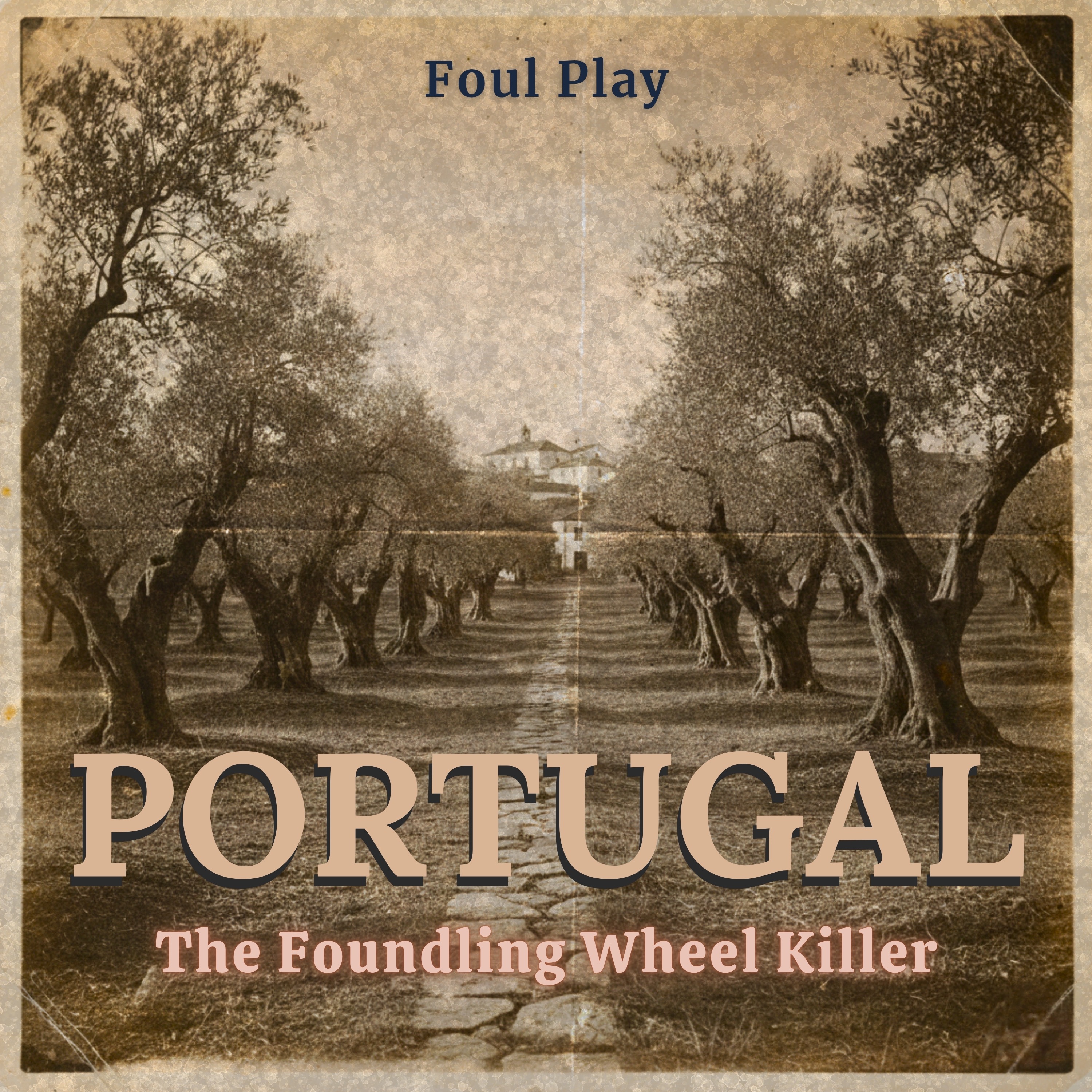Podcast Episode Details
Back to Podcast Episodes
Portugal: The Foundling Wheel Killer (1772)
Season 36 Episode 4
In the olive groves of 18th-century Portugal, a caretaker discovered a shallow grave containing an infant's body with
Episode 4 of 15 | Season 36: Serial Killers in History
The investigation into Luísa de Jesus begins, revealing a systematic pattern of infant murders that would expose fatal flaws in Portugal's child welfare system and lead to her execution as the nation's first documented female serial killer.
The Victims: Portugal's Abandoned Infants
In 1772, desperate poverty gripped Portugal under King Joseph I's reign. Across Coimbra, destitute mothers with no means to feed their newborns turned to the Casa da Rota—the foundling wheel system—hoping charitable institutions would save their babies' lives. These infants, called "expostos" or "exposed ones," were placed anonymously in rotating wooden cylinders built into orphanage walls. A bell would ring, alerting caretakers inside that another abandoned child needed their care. The system was born of compassion, designed to prevent infanticide by offering mothers a safe alternative. For each child taken in, caregivers received a modest stipend of 600 réis, a cradle, and cloth—enough support to raise an infant in theory. In practice, hundreds of babies overwhelmed Coimbra's understaffed facilities each year. These were Portugal's most vulnerable citizens: newborns abandoned by mothers with no other choice, babies born into poverty or out of wedlock, innocent lives dependent on a system that promised protection but delivered catastrophic negligence.
Why This Case Changed Portugal Forever
The case of Luísa de Jesus represents a devastating failure of 18th-century child welfare institutions and a pivotal moment in Portuguese legal history. Her systematic exploitation of the foundling wheel exposed how easily vulnerable populations could be preyed upon when oversight mechanisms collapsed. The discovery of 33 murdered infants shocked a nation and forced Portugal to confront uncomfortable truths about how it protected—or failed to protect—its abandoned children. This case directly led to sweeping reforms of Portugal's child welfare system, including the landmark 1783 decree by Queen Maria I mandating that all towns establish properly supervised foundling hospitals. Luísa's execution on July 1, 1772, made her the last woman ever executed in Portugal, cementing her place in both criminal and legal history. The case remains a stark reminder that society's most vulnerable members require active protection, not passive charity, and that systematic failures create opportunities for monsters to operate in plain sight.
The Investigation and Discovery
On the morning of April 1, 1772, Angelica Maria, a caretaker from Coimbra's foundling home, walked through olive groves at Monte Arroio when she discovered recently disturbed earth. Kneeling to investigate, she unearthed the shallow grave of an infant with strangulation marks still visible around its delicate neck. Authorities quickly traced the dead child back to Luísa de Jesus, a 23-year-old delivery worker who had officially "adopted" the baby just days earlier.
When interrogated on April 6, Luísa coldly confessed to murdering three infants. But investigators suspected far worse. A search of her modest home in Figueira de Lorvão revealed a makeshift graveyard—eighteen tiny bodies buried beneath the floor and hidden in corners. Some had been dismembered, their remains stored in clay pots under straw. Excavations at Monte Arroio uncovered thirteen more infant corpses, bringing the confirmed death toll to 33 babies.
Records showed Luísa had officially adopted 34 children from Coimbra's foundling wheel over several years, collecting the 600 réis stipend for each. She had provided false addresses and fictitious adopting families, exploiting a system with virtually no follow-up procedures. The foundling wheel workers,
Published on 3 months, 3 weeks ago